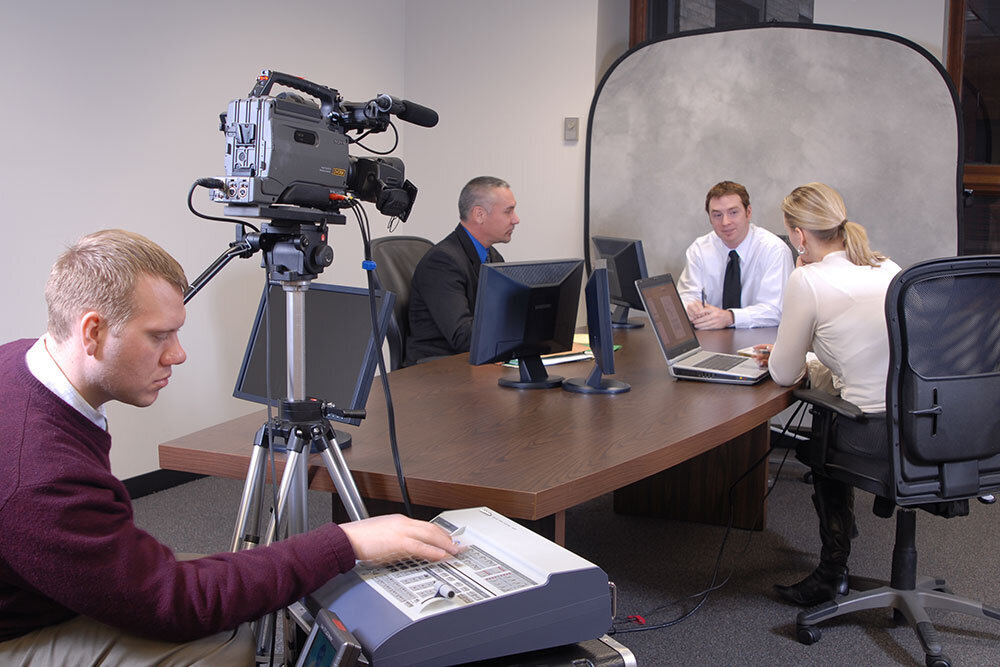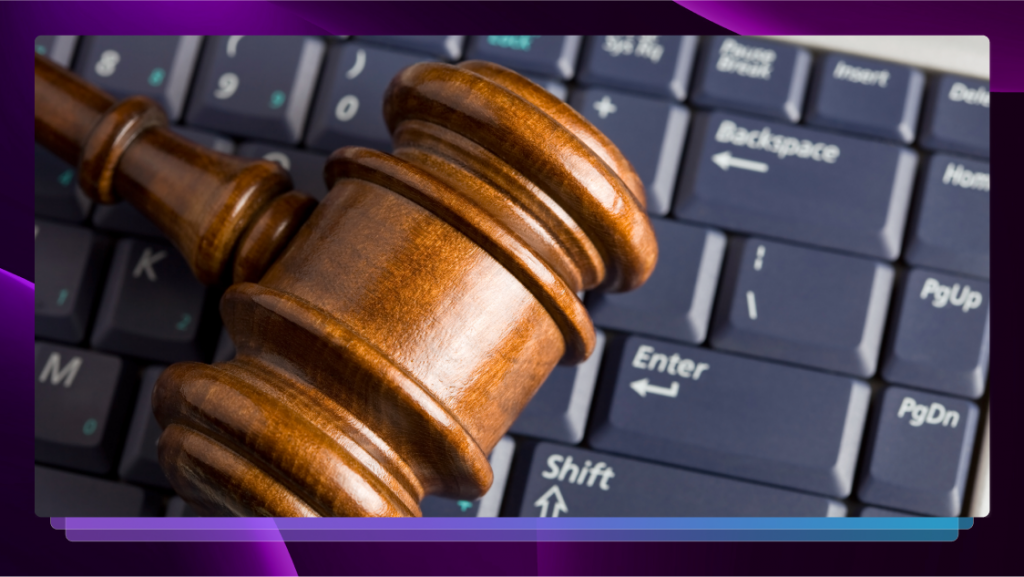The Relevance of Lawful Video Depositions in Modern Legal Providers: What You Need to Know
Lawful video depositions have come to be crucial in today's lawful landscape. They offer a multidimensional view of witness testimonies that typical transcripts merely can not match. By capturing both non-verbal and spoken communication, these depositions enhance the total understanding of a witness's reputation. Nevertheless, the effectiveness of video depositions depends upon various variables, consisting of conformity with lawful criteria and ideal practices (legal video depositions). Checking out these aspects exposes their true importance in contemporary legal solutions
What Are Legal Video Depositions?
Legal video depositions function as an essential device in the litigation process. They include videotaping witness testaments in a video clip format, catching both non-verbal and verbal interaction. This approach enables lawyers to document the disposition, expressions, and reactions of witnesses, providing a richer context for the statement. Usually carried out in a controlled atmosphere, these depositions are led by attorneys who ask inquiries while a court reporter documents the discussion. The resulting video can be critical for trial prep work, as it makes it possible for attorneys to analyze the reliability of witnesses and refine their methods. In addition, lawful video depositions can be made use of in different legal contexts, varying from civil conflicts to criminal instances. The visual and acoustic aspects of video clip depositions enhance the discussion of proof, making it an important component in the modern lawful landscape. Generally, they contribute substantially to the efficiency and effectiveness of legal proceedings.

Benefits of Video Depositions Over Traditional Techniques
Video depositions offer many advantages compared to typical methods of taking witness testaments. One considerable benefit is the ability to catch both visual and audio aspects, providing a more detailed record of the witness's statements. This twin format boosts clearness and permits legal professionals to reference specific nuances during test prep work. Furthermore, video depositions facilitate remote participation, making it much easier for witnesses that might be inaccessible for in-person looks due to geographical restraints or wellness issues.Moreover, video clip depositions can speed up the general deposition process, reducing the moment and expenses connected with traveling and logistics. They likewise enhance ease of access, as taped depositions can be quickly shared among lawful teams and referenced at any kind of time. This comfort contributes to far better situation monitoring and prep work. In general, video clip depositions stand for a modern, efficient technique to collecting witness testaments, lining up with the evolving needs of the lawful career.
The Function of Body Language and Tone in Testimonies

In legal video clip depositions, body language and tone play crucial functions in sharing a witness's trustworthiness and credibility. Nonverbal cues can provide insights into a witness's psychological state, affecting how their testimony is viewed. Recognizing the effect of these aspects is important for lawyers and jurors alike when reviewing the reliability of a testament.
Nonverbal Communication Insights
While verbal communication is often stressed in legal statements, nonverbal signs such as body movement and tone play a necessary function in conveying reliability and emotion. Viewers of depositions might note that a witness's pose, motions, and faces can significantly affect perceptions of integrity. Constant eye call may signify self-confidence, while staying clear of stare might recommend dishonesty or pain. Likewise, the intonation-- its quantity, pitch, and rate-- can pass on sensations of sincerity or uncertainty. Lawyers need to be attuned to these nonverbal signals, as they typically supply critical context that complements talked words. Recognizing these nuances can improve the effectiveness of depositions and affect the outcome of lawful proceedings.
Emotional Tone Effect
The psychological tone communicated throughout legal testaments greatly affects just how a witness is viewed. Body language, singing inflections, and face expressions play crucial functions in shaping the story of a testimony. A witness showing self-confidence via steady eye call and a calm tone can impart a feeling of reliability and involvement. Conversely, indicators of stress and anxiety, such as fidgeting or an unsteady voice, might bring about uncertainty concerning their account. The subtleties of psychological expression can influence the interpretation of facts, making it crucial for legal specialists to acknowledge these cues. In video clip depositions, the visual and auditory parts integrate, stressing the value of emotional tone in sharing genuineness and truthfulness within the lawful process.
Trustworthiness and Dependability
A vital consider establishing reliability and reliability during testaments hinges on the witness's body language and intonation. Observers frequently depend on non-verbal signs-- such as eye call, stance, and motions-- to assess a witness's genuineness. As an example, a witness who keeps eye call and presents open body language might be perceived as more sincere and trustworthy than one that prevents eye get in touch with or shows up shut off. In addition, intonation plays an important duty; a consistent, calm tone can enhance the trustworthiness of the testimony, while changes in click here to read pitch or volume may increase questions. Ultimately, the mix of body language and singing tone considerably influences how a witness's statements are gotten and translated in a lawful context.
Ideal Practices for Carrying Out Video Clip Depositions
Performing video clip depositions calls for cautious planning and execution to ensure a clear and reliable discussion of testament. Initially, it is necessary to select a silent, well-lit area to decrease interruptions and safe and secure optimum video quality. The tools must be examined ahead of time, including video cameras, microphones, and illumination, to avoid technical concerns throughout the deposition.Next, events entailed need to examine the style and treatments beforehand, making certain that every person understands their duties. The deponent ought to be briefed on the process, consisting of just how to respond clearly and concisely.Additionally, preserving an expert temperament throughout the session is important. This consists of abstaining from talking over each other and validating that all inquiries are routed properly. It is crucial to record the deposition in a layout that allows for simple playback and review, protecting the integrity of the testament for future usage.
Lawful Considerations and Conformity Issues
Exactly how do legal considerations and conformity issues affect the performance of video depositions? Attorneys need to browse a complicated landscape of regulations, ensuring that video clip depositions stick to jurisdictional guidelines and requirements. Conformity with laws concerning privacy, approval, and taping techniques is necessary. Acquiring specific consent from all events entailed is necessary to stay clear of legal repercussions.Additionally, the admissibility of video evidence in court can hinge on conformity with step-by-step demands. Making sure that the equipment made use of fulfills technological standards is likewise essential, as poor top quality can undermine the deposition's reliability.Moreover, lawyers must know any type of details state legislations that govern video depositions, as these can differ considerably. Failing to address these considerations can not only threaten the honesty of the deposition however additionally impact the overall instance approach, inevitably influencing the customer's lawful results.
Just How Video Clip Depositions Effect Court Perception
While video clip depositions can act as effective devices in legal procedures, their impact on court assumption is significant. The aesthetic and acoustic elements of video recordings supply jurors with a much more comprehensive understanding of witness behavior, integrity, and psychological feedbacks. This multimedia technique can boost the jurors' ability to assess the dependability of testimony contrasted to traditional text-based transcripts.Moreover, video depositions permit jurors to observe body movement, tone of voice, and facial expressions, all of which can influence their interpretation of the witness's statements. The existence of a witness on screen can humanize them, cultivating compassion and link, which may persuade jurors' opinions. Conversely, a witness that appears incredibly elusive or unreliable on video might bring about negative perceptions that affect a court's decision. Inevitably, the dynamic nature of video clip depositions plays a crucial duty fit exactly how jurors interpret evidence and reach their decisions.
The Future of Video Clip Depositions in Legal Method
As click this link improvements in technology remain to reshape the legal landscape, the future of video clip depositions is poised for substantial advancement. Advancements such as expert system, digital fact, and improved video conferencing tools are expected to improve the deposition process and enhance availability. Lawyers might use AI-driven analytics to examine witness credibility and situation stamina more effectively.Moreover, the assimilation of digital reality might permit courts to experience immersive simulations of depositions, providing deeper context and understanding. In addition, the fad towards remote depositions is most likely to persist, providing greater flexibility for lawyers and clients alike.As remote job comes to be increasingly stabilized, video clip depositions will likely end up being conventional method, reducing prices and time restrictions related to typical approaches. Generally, these technological innovations assure to boost the effectiveness, effectiveness, and availability of video clip depositions in lawful technique, inevitably changing exactly how lawyers get ready for trial.
Regularly Asked Inquiries
Just How Much Do Legal Video Clip Depositions Typically Cost?

Can Video Clip Depositions Be Made Use Of in Any Kind Of Kind of Instance?
Video clip depositions can be made use of in different types of instances, consisting of civil, criminal, and family members legislation. Their adaptability enables attorneys to present witness Get the facts testimonies properly, adjusting to the particular requirements of various legal circumstances.
What Equipment Is Required for a Video Deposition?
To conduct a video clip deposition, important devices consists of a top notch camera, microphone, lights, and a trustworthy recording gadget. Furthermore, a computer with editing and enhancing software program may be needed for post-production and formatting the final video.
How Lengthy Does a Regular Video Clip Deposition Last?
A normal video clip deposition lasts between two to four hours, relying on the complexity of the instance and the number of inquiries presented. Extensive sessions may happen, but breaks are normally incorporated for participant comfort.

Are Video Depositions Admissible in Court?
Video clip depositions are usually permissible in court, supplied they stick to legal requirements and rules of proof. Their usage improves clearness and maintains witness statement, assisting in the judicial procedure throughout hearings and tests. Lawful video depositions have actually become necessary in today's legal landscape. Additionally, lawful video clip depositions can be utilized in various lawful contexts, ranging from civil conflicts to criminal instances. Additionally, video depositions facilitate remote participation, making it much easier for witnesses that might be inaccessible for in-person appearances due to geographical restrictions or wellness issues.Moreover, video clip depositions can expedite the total deposition procedure, lowering the time and prices linked with traveling and logistics. Guaranteeing that the equipment made use of fulfills technological criteria is also important, as inadequate high quality can undermine the deposition's reliability.Moreover, lawyers must be aware of any type of details state regulations that control video depositions, as these can differ significantly. Additionally, the fad towards remote depositions is most likely to persist, using greater adaptability for clients and attorneys alike.As remote job ends up being significantly normalized, video depositions will likely come to be typical method, reducing prices and time constraints connected with typical techniques.